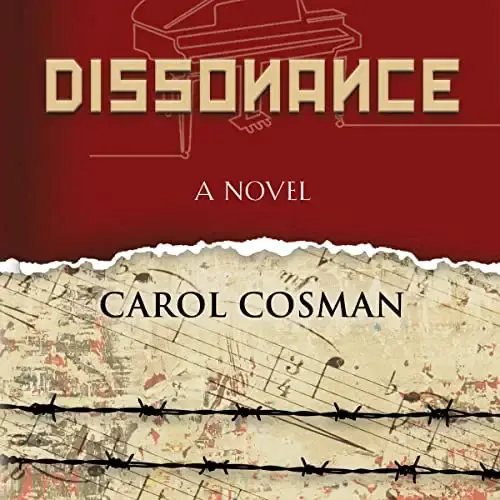Voicing ideas of 'home'
- Melanie

- Oct 14, 2022
- 3 min read
Audiobook narration
Available now
Remember those 1970’s spy thriller movies? Checkpoint Charlie, people chain-smoking, high stakes drama set against the backdrop of the creaking friction between opposing ideologies. Dissonance evokes the atmosphere I remember of those films - the gritty realism, the ticking tension. The novel reminded me about extraordinary historical events that had dimmed in my memory a little - not surprising, we have enough world-changing stiff going on now to keep us occupied. The luxurious detail of a book allows the complexity of human stories shine to through without dampening down the context that make those stories highly dramatic too - I think films (although a great love of mine) often fail to do that.
Young Soviet pianist Natalia Aronovich is poised for international stardom when, in one shocking act, a Red Guard officer interrupts her performance and removes her from the stage. She later learns the KGB has arrested her father, Pravda journalist Mikhail Aronovich, for his undercover involvement with Soviet dissidents, refuseniks, and Israeli Intelligence.
Soviet officials force Natalia to leave Russia, but she is determined to return and free her father from certain death in the Gulag. She seeks help from Yonatan Yerushalmi, a Mossad agent, but he finds Natalia’s request impulsive and refuses to assist her. Undaunted, Natalia recruits Soviet-Israeli doctor Tanya Shlain and, equipped with aliases, fake passports, and firearms, they embark on a perilous mission to smuggle Mikhail out of Russia.
Against the backdrop of an oppressive Soviet regime and escalating Middle East tensions in the months leading to the 1973 Yom Kippur War, Dissonance takes the listener on an emotional and unforgettable journey—from the soul of a pianist who must reinvent herself to the conflicts that usher in an unforgiving war.
Carol Cosman’s tale is full of fast paced action, her characters up against perilous circumstances, trying to subvert a vicious regime while at the same time she explores aspects of friendship, national identity, concepts of 'home' and meditates on art and culture being part of human society and how such narratives and symbols evolve over time as the powerful manipulate the masses. She offers the reader romance, beauty, insights into a people's cuisine and their lives - living as they did under close surveillance and the constant threat of incarceration and torture,
This is a book filled with heroes and heroines - those working quietly at their desks and those prepared to fight in the field. It's a tribute to the strength of human spirit and courage in the face of vast odds to find a future that suits a certain kind of soul. For this reason, for me, it sits alongside two other projects I've been privilidged to participate in: most recently as an actor on stage in a show called Tannie & Tannie - partly about the experience of white female settlers on the South African veld but encompassing more broadly ideas of national identity, borders, human migration, climate change and the longing for safety and home in the face of extreme circumstances. And back in 2005 before I returned to acting - I worked in the film industry and produced the first major Gypsy film festival with Gypsy films, directors, writers and actors visiting from across Europe. We titled this festival 'Finding Romanistan' - the idea again of looking for a home - which perhaps for Romani, Gypsy and Traveller peoples is more nebulous as a concept but gave us something to thread our programme onto and was an interesting angle to take when considering the body of work we were able to exhibit from the disapora.
As to the practicalities of narration for Dissonance - don't let anyone tell you that locating an accurate Israeli accent is easy! Actually the most difficult thing was understanding the level of development of the accents for the different characters given where Carol had placed her narrative in history. Israel had not been established that long so influences from immigrants' countries of origin was important. Then there's the fact that Russian and Israeli accents have similarities - trying to switch between these ion a conversation between powerful men trying to out-macho each other. Yes, I enjoyed it because it was an enormous challenge but next time I'll give myself more time to practice before recording!
Recorded from my studio in Sheffield.





Comments